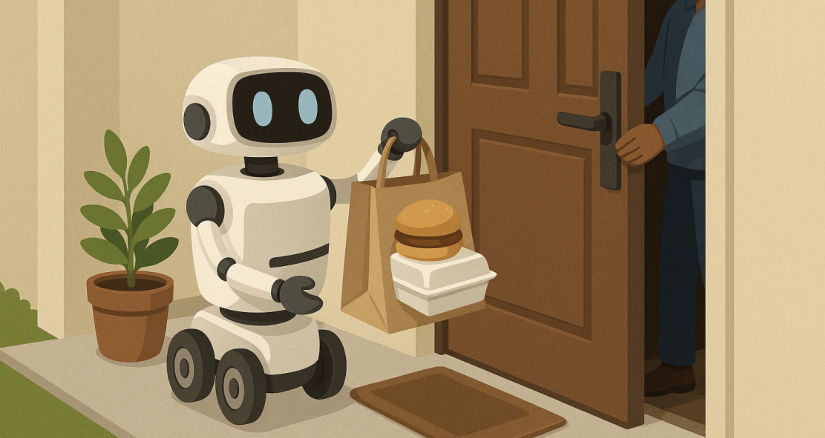
The Algorithm Ate My Appetite
The days of driving around aimlessly in search of somewhere to eat just might be behind us. OpenAI recently announced that it was teaming up with DoorDash and Uber Eats, allowing users to ask for restaurant recommendations and place orders through ChatGPT. This move looks very convenient for consumers and great for food delivery services, who will now be integrated into one of the largest large language models (LLMs) in the world. But at what cost?
Amid this corporate partnership, it doesn’t seem like there’s much room for organic discovery anymore. How curated will our apps and algorithms be before the choice is taken out of the consumers’ hands altogether? And if we’re outsourcing our tastes to the computers, where does that leave small brands?
Photo by AntonioGravante
From Search Engines to AIgorithms
This wasn’t an overnight shift; in fact, we’re seeing our choices being narrowed down before our very eyes. Not that long ago, people found new restaurants by Googling “best sushi near me” and comparing their options by looking at menus and online reviews. Now, social media platforms are used as search engines, and consumers receive results curated specifically for them based on content they’ve liked in the past and the algorithm’s predictions of what else they might like. Tomorrow, someone might tell ChatGPT to recommend a restaurant for them and get an answer based not only on the sponsorships or partnerships that OpenAI is part of (which can happen on Google Maps), but also the personal information that the tool has learned and remembered about them over time (which Google Maps doesn’t do). The pool of options gets smaller with every technological update, leaving less room for smaller brands to get their foot in the door.
The implications of this news go beyond just food, too. Social media already tells us what to eat, read, watch, wear, and buy. At the rate we’re going, AI will start telling us these things too. If OpenAI can partner with brands like DoorDash, Spotify, and Expedia, who’s to say it can’t partner with SHEIN or Toyota too? We don’t know all the details of this partnership, or whether Chat’s recommendations will be based on which restaurants have paid to be more visible on DoorDash and Uber Eats.

Photo by mstandret
Where Does This Leave the Little Guy?
Aside from my concern for consumers and individuality, this concept puts small brands in a tough spot. Small businesses often already struggle to compete with massive corporations on price and labor costs, and not every company has the money to partner with a huge brand like OpenAI. Pair this with the convenience of shopping big businesses over small ones, and this makes the obstacles small brands have to face seem insurmountable.
Additionally, while there are subsets of people who reject AI, it’s becoming more unavoidable in everyday life, and there are many who actively embrace AI as the next therapists, research tools, and even significant others. This is another terrifying sentiment for small brands as people can now watch in real time the ways in which technology is replacing aspects of human life.
Even though it seems impossible, I do believe there are ways for small businesses to overcome these challenges and make themselves unmissable. My suggestion? Cut through the algorithms with humor, personality, and a great story—everything that makes your brand uniquely human. Brands like Coach have engaged Gen Z through Coach Play stores, creating an engaging experience that AI just can’t replace. There are plenty of brands and organizations on social media that continue to bring the heart and humor of humankind to various platforms, as well. The future of technology is uncertain, but there is always room for small, passionate brands that care about their consumers.
How We Can Help
At BSM Partners, we help brands stay discoverable in a world increasingly run by machines and algorithms. No matter the size of your company, our team can help you find your story and ensure its seen by the right people. Just because AI is now curating the menu doesn’t mean you won’t have a seat at the table.
Follow us on LinkedIn for the latest updates on all things happening here at BSM Partners.
About the Author
Cady Wolf is an Analyst at BSM Partners. She graduated magna cum laude with a degree in English from Brigham Young University-Idaho, and she currently lives in Rexburg, Idaho with her husband, their two cats, and pet tortoise. She loves animals and learning about how to help pet brands and pet parents alike.
This content is the property of BSM Partners. Reproduction or retransmission or repurposing of any portion of this content is expressly prohibited without the approval of BSM Partners and is governed by the terms and conditions explained here.